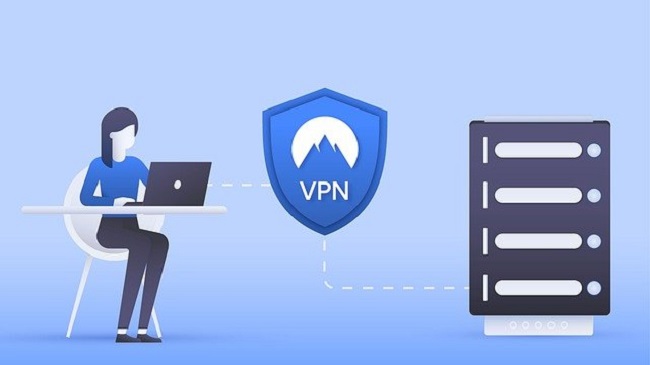With 16% of the desktop and laptop market share, there are tens of millions of Mac users looking for safety from the best VPN, and that number is only expected to grow as Apple’s popularity rises. The good news is that there are a plethora of excellent options available to meet any need or budget.
Here Are Some VPN For MAC
Macs, contrary to common belief, are just as susceptible to monitoring, hacking, and censorship as Windows computers. When you use a virtual private network (VPN) on your Mac, your online actions are concealed from prying eyes.

Moreover, a few Mac VPNs can unblock streaming services like Netflix and BBC iPlayer, allowing you to view your favourite shows and live sporting events from anywhere in the world at a lower price or even for free. We’ve compiled a list of the top VPNs for Mac that cover all your bases.
Read Also:
In What Ways do VPNs for Macs Excel?
Even if your primary intention is to watch American Netflix from another country, your privacy should still be your top priority. There is no reason to skimp here, as many excellent providers already exist that have been audited and provide zero-logging policies.
Next, think about how you’ll be utilising your Mac VPN. How often do you torrent? Be certain that your preferred provider supports P2P on a sizable number of servers. Like watching television a lot? Be sure your virtual private network (VPN) has never been blocked before.
While fast connections are important, modern VPNs can achieve speeds far exceeding those of a typical domestic internet connection because to advancements in VPN protocol technology. ExpressVPN, our recommended Mac VPN, meets all these criteria and more, with well-designed apps and excellent customer care.
Our hands-on testing showed that it performed admirably across the board, was incredibly user-friendly, and was compatible with all of the devices we threw at it (particularly Macs). There are a few competitors, however, so keep reading to learn about our top five Mac VPN picks.
1: ExpressVPN
Unblocks Netflix, iPlayer, YouTube, Amazon, and Hulu; Works with Windows, Linux, iOS, and Android; Money-back guarantee lasts 30 days; Server count is 3,000+; Maximum number of connected devices is 5.
Our ExpressVPN hands-on review found it to be our favourite VPN overall, and this opinion hasn’t changed now that we’re choosing the best VPN for Mac. You won’t even notice it’s on, as the provider’s speeds are so fast (due to its unique Lightway protocol) that you won’t even notice it’s on.
When it comes to security, ExpressVPN has full control over its own ‘TrustedServer’ DNS servers, so your information is never shared with a third party. In addition to this, we have implemented a zero-logging policy that has been thoroughly audited and is virtually unbreakable, so you can rest assured that your private data is safe.
When it comes to streaming, ExpressVPN is also the top choice. It can bypass geo-restrictions on Netflix from around the world, as well as BBC iPlayer from outside the UK, Amazon Prime Video, YouTube, and many more. When compared to other top VPNs like NordVPN and Surfshark, that’s fantastic performance.
2: Surfshark
Supports Windows, Linux, iOS, and Android; bypasses geo-restrictions for Netflix, iPlayer, YouTube, Amazon, and Hulu; comes with a 30-day money-back guarantee; has 3,200+ servers; and allows an unlimited number of simultaneous connections.
For a number of years now, Surfshark has been making waves in the VPN sector, and our Surfshark review concluded that it provided an appealing blend of low price and high performance. Just because it’s inexpensive doesn’t mean it’s not secure.
As compared to similar products, Surfshark is incredibly inexpensive. WireGuard, OpenVPN, and IKEv2 are all supported, as is the basic AES-256 encryption protocol, plus there are a few extras like split tunnelling and Double Hop.
Like ExpressVPN, its user-friendly design makes it simple to take use of or disregard the service’s many advanced capabilities. When it comes to unblocking streaming sites, Surfshark is just as competent, and after a few months of shaky performance, Netflix users in the UK, US, and elsewhere can once again access Netflix’s extensive library.
It’s a fantastic option for streaming enthusiasts because to its compatibility with iPlayer, Disney+, and Amazon Prime. But, let’s be honest: Surfshark’s price is its main selling point.
While it lacks the power and capabilities of competitors like ExpressVPN and NordVPN, for less than $2.50 per month, you get a Mac VPN that allows you to connect an unlimited number of devices.
3: NordVPN
Compatible with Windows, Linux, iOS, and Android; bypasses geo-restrictions on Netflix, iPlayer, Amazon, YouTube, and Hulu; offers a 30-day money-back guarantee; has 5,500+ servers; allows for use on up to six devices at once.
Because of its prominence in the industry, it comes as no surprise that NordVPN is consistently ranked among the best Mac VPNs. Millions of people rely on it because of its stellar reputation for security and privacy, which we found to be well-deserved in our comprehensive assessment of NordVPN.
In addition to the standard fare of strong encryption and numerous protocols, which are also provided by NordVPN’s competitors ExpressVPN and Surfshark, the provider also offers a few extras
. You can enjoy unparalleled anonymity at the expense of some speed by using the special “Onion over VPN” setting. Furthermore included are not one, but two kill switches, as well as the useful Double VPN function.
When we ran the latest round of tests, we saw that NordVPN’s WireGuard-based NordLynx protocol reached speeds of around 820Mbps on our gigabit connection, making it one of the fastest VPNs we’ve tested. You may not have access to a super-fast connection, but rest assured that Nord won’t slow you down even if they can’t.
Details about the VPN:
What Is a VPN?
A VPN, or Virtual Private Network, is a technology that establishes a secure and encrypted connection over the internet, allowing users to access the web while protecting their privacy and enhancing security.
VPNs are used to create a private network over a public internet connection, enabling users to mask their IP addresses and encrypt their data transmissions.
How Does a VPN Work?
Understanding how a VPN works is fundamental to grasping its significance. Here’s a step-by-step breakdown of the process:
- Establishing a Connection: When you connect to a VPN service, it creates a secure tunnel between your device and a VPN server located in a different geographic location. This server can be in the same country or even halfway across the world.
- Data Encryption: Once the connection is established, all data transmitted between your device and the VPN server is encrypted. Encryption ensures that even if your internet connection is intercepted, your data remains confidential.
- IP Address Masking: Your real IP address is concealed, and you are assigned an IP address from the VPN server’s location. This masks your identity and geographic location, making it difficult for websites, advertisers, or malicious actors to track you.
- Access to Restricted Content: VPNs enable users to bypass geo-restrictions and access content that may be blocked or censored in their region. By connecting to a VPN server in a different country, you can appear as if you’re browsing from that location.
Benefits of Using a VPN
VPN services offer a wide range of benefits, making them a valuable tool for individuals and businesses alike:
1. Enhanced Privacy: VPNs hide your IP address and encrypt your internet traffic, safeguarding your online activities from prying eyes, including ISPs (Internet Service Providers) and government surveillance.
2. Security on Public Wi-Fi: When connected to public Wi-Fi networks, such as those in coffee shops or airports, your data is vulnerable to hackers. VPNs encrypt your connection, preventing potential cyberattacks.
3. Access to Geo-Restricted Content: VPNs allow you to bypass geo-blocks and access streaming services, websites, and content that may be restricted in your region. This is especially useful for travelers.
4. Anonymous Torrenting: VPNs hide your identity when torrenting, ensuring your online activities remain private and reducing the risk of legal repercussions.
5. Protection Against Cyber Threats: VPNs add an extra layer of security, making it harder for cybercriminals to intercept your data and launch attacks.
6. Secure Remote Work: Businesses use VPNs to provide employees with secure remote access to company networks and data. This is crucial for telecommuting and maintaining data integrity.
Potential Drawbacks of Using a VPN
While VPNs offer numerous advantages, there are some potential drawbacks to consider:
1. Reduced Speed: Encrypting and rerouting data through a VPN server can lead to a reduction in internet speed. The extent of the slowdown depends on factors like server location and your original connection speed.
2. Cost: While some VPN services offer free plans, premium VPNs often require a subscription fee. It’s essential to balance the cost against the level of privacy and security you require.
3. Trust in the VPN Provider: When you use a VPN, you entrust the provider with your data. It’s crucial to choose a reputable VPN service with a strict no-logs policy to ensure your privacy.
4. Blocked by Some Services: Some websites and streaming platforms employ anti-VPN measures to prevent users from accessing content from different regions. This can limit the effectiveness of a VPN.
Choosing the Right VPN Service
Selecting the right VPN service is critical to ensuring your privacy and security. Here are some key factors to consider when choosing a VPN:
1. Security and Encryption: Look for a VPN that offers strong encryption protocols, such as AES-256, and has a no-logs policy to protect your privacy.
2. Server Locations: Ensure the VPN has servers in locations that align with your needs, such as accessing geo-restricted content or enhancing privacy.
3. Speed and Performance: Opt for a VPN service known for maintaining fast connection speeds, especially if you plan to stream or download large files.
4. User-Friendly Interface: A user-friendly app or client makes it easier to connect to the VPN and adjust settings as needed.
5. Customer Support: Good customer support is invaluable if you encounter technical issues. Check for 24/7 support and helpful resources.
6. Price and Plans: Compare pricing and subscription plans to find one that fits your budget and offers the features you need.
7. Compatibility: Ensure the VPN is compatible with your devices and operating systems, including Windows, macOS, iOS, Android, and more.
Read Also:
Conclusion
A VPN, or Virtual Private Network, is a crucial tool for protecting your online privacy and security. By encrypting your internet connection, masking your IP address, and offering access to geo-restricted content, VPNs have become indispensable in the digital age.
However, it’s essential to choose a reputable VPN service that aligns with your specific needs and priorities, as not all VPNs are created equal. Whether you’re concerned about online privacy, security on public Wi-Fi, or accessing global content, a well-chosen VPN can provide peace of mind in an increasingly connected world.


